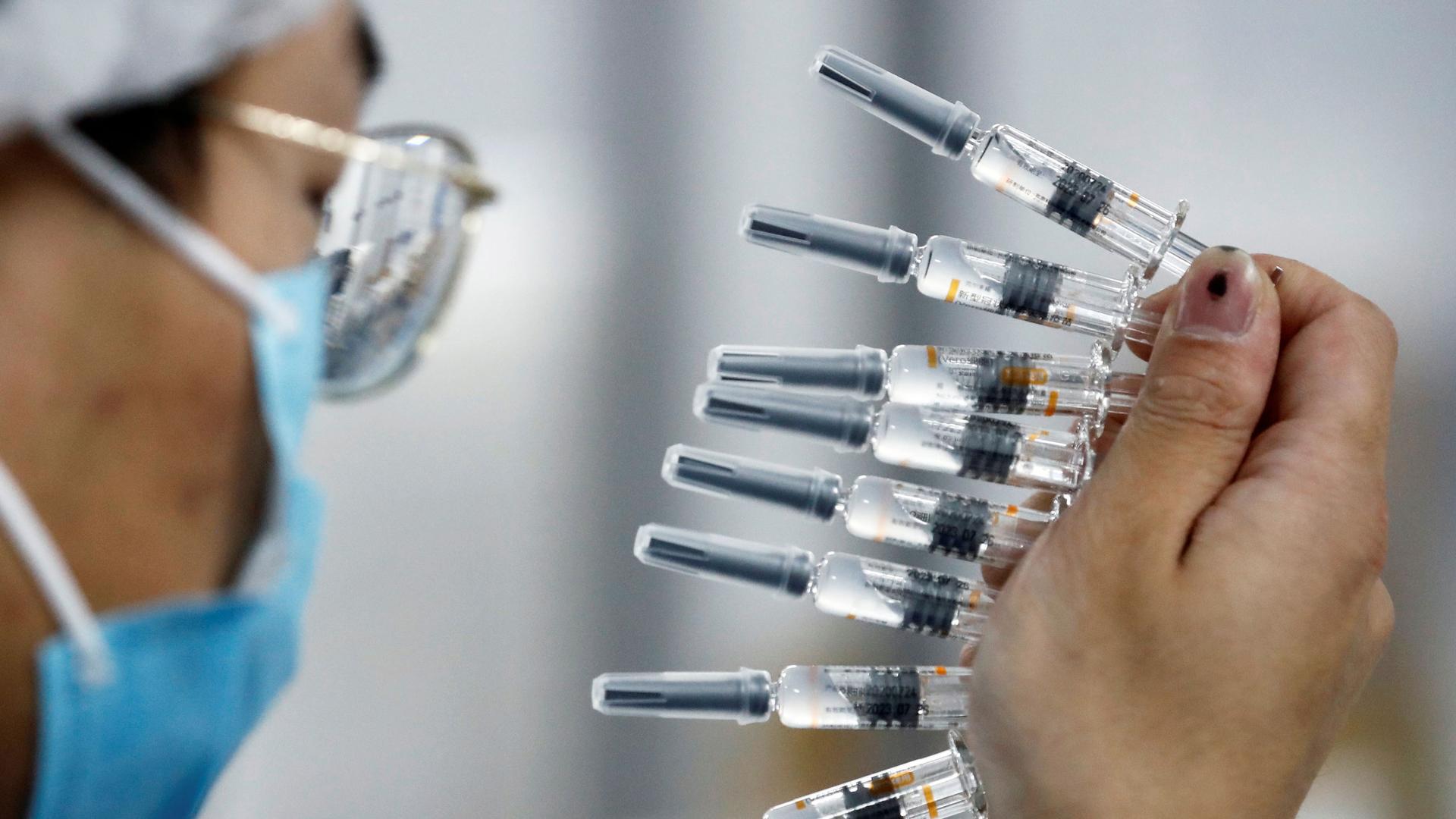Discussion: Will people accept a COVID-19 vaccine?
A worker performs a quality check in the packaging facility of Chinese vaccine maker Sinovac Biotech in Beijing, China, Sept. 24, 2020.
World Bank President David Malpass said Wednesday the global coronavirus pandemic could push 150 million people into extreme poverty by 2021.
He added that the negative impact on humanity will be deep and may last decades without a vaccine and widespread access to innoculation.
“Broad, rapid and affordable access to COVID[-19] vaccines will be at the core of a resilient global economic recovery that lifts everyone,” he said.
Johnson & Johnson Chief Executive Alex Gorsky recently committed 500 million vaccine doses for low-income countries with delivery starting in mid-2021.
“Having access to lifesaving COVID diagnostics, therapeutics or vaccines … shouldn’t depend on where you live, whether you’re rich or poor,” said Gorsky, adding that while Johnson & Johnson is “acting at an unprecedented scale and speed, but we are not for a minute cutting corners on safety.”
Related discussion: Reopening schools and workplaces amid the coronavirus
Meanwhile, US President Donald Trump has said that a vaccine might be ready before the Nov. 3 US presidential election, raising questions about whether political pressure might result in the deployment of a vaccine before it is safe.
Several COVID-19 vaccines are in various stages of development, including top contenders currently being tested for safety and efficacy. But it remains unknown whether people will readily accept them once available.
A recent Pew survey suggests that only about half of Americans report they would take a COVID-19 vaccine as soon as one is available. What might such hesitancy mean for curbing the pandemic?
As part of our series of conversations about the pandemic, The World’s Elana Gordon moderated a discussion with Dr. Howard Koh, the Harvey V. Fineberg professor of the practice of public health leadership at Harvard’s T.H. Chan School of Public Health and the Harvard Kennedy School, as well as the former assistant secretary for health for the US Department of Health and Human Services.
This conversation is present in partnership with The Forum at Harvard’s T.H. Chan School of Public Health.
Reuters contributed to this post.
